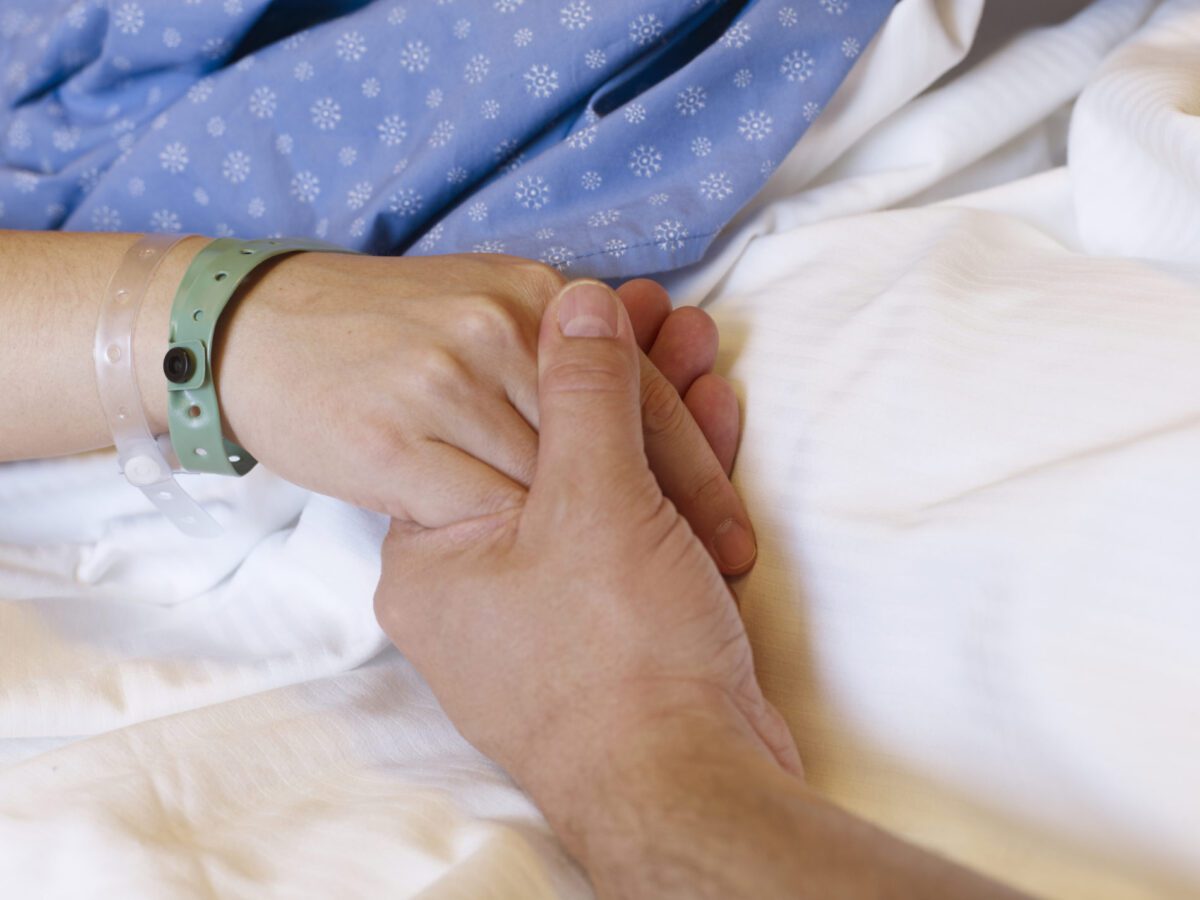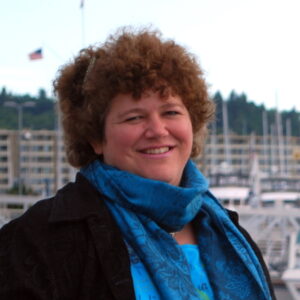
Beth Fahlberg is a nationally recognized expert in nursing and palliative care, and her extraordinary passion for the subject comes from firsthand experience. The University of Wisconsin-Madison faculty associate has acted as caregiver and advocate for her family members when faced with end-of-life challenges, most recently her brother Chris.

Chris died last year at 47, after many long-term complications of the cancer treatments that saved his life in 1998. What he went through confirmed Fahlberg’s belief that healthcare professionals need up-to-date training to help those who are seriously ill or dying.
“The suffering I’ve seen in my family is what motivates me in a lot of the work I do,” she says, “My brother had so many distressing healthcare experiences, during which he often didn’t feel included or listened to concerning his own care. This was particularly challenging when he was hospitalized and being asked to make important decisions about his health and his future without the ability to seek out the information he needed to feel fully informed.”
On Sept. 7-8 and again on Oct. 5-6 and Nov. 10-11, Fahlberg will teach a program called Easing the Burden of Aging and Illness: Integrating Supportive and Palliative Care. These special programs will be held at Bunky’s Café in Madison, providing a safe, supportive environment for sharing and discussing challenging and important palliative care issues. Sponsored by UW-Madison’s Division of Continuing Studies, the course is a response to the Institute of Medicine’s 2014 report Dying in America: Improving Quality and Honoring Individual Preferences Near the End of Life. The report identified five key areas in end-of-life care that need improvement, and it recommended that all healthcare providers receive primary palliative care training.
“This was a pivotal report, and it offers the possibility of changing things for the better,” Fahlberg says. “The goal is that all healthcare professionals will be able to provide individualized care for patients as well as for their family members, to improve the quality of care near the end of life.”

This interprofessional course will prepare human services clinicians (i.e., nurses, social workers, case managers, psychologists, clergy, counselors, and others), along with patients and their caregivers, to understand needs commonly associated with aging and advanced illness. Participants will gain an understanding of patient- and family-centered approaches to assessment, intervention, communication, advocacy, along with perspectives on interprofessional teamwork that will prepare them for complex clinical situations.
To prepare for this course and other future palliative care offerings from the Division of Continuing Studies, Fahlberg attended the International ELNEC Summit (End of Life Nursing Education Consortium) in Kona, Hawaii, where she and several hundred palliative care nursing leaders from around the world learned to be ELNEC curriculum trainers. She is currently teaching ELNEC Critical Care, which equips healthcare clinicians in primary palliative care provision for patients and families facing critical or serious illness.
In conjunction with this, Fahlberg is also teaching ELNEC Critical Care Train-the-Trainer, which prepares participants to teach ELNEC Critical Care themselves. She says this is a great fit for her, drawing on her expertise in heart-failure-focused palliative care and in teaching and learning.
A holistic approach
Easing the Burden of Aging and Illness encourages a holistic approach to care, focusing on patients’ and families’ physical, psychological, social, and spiritual needs. Fahlberg will discuss strategies for promoting individualized quality of life and providing support in the midst of uncertainty or impending loss; having important but difficult conversations; prioritizing symptom management; navigating ethical dilemmas; and preparing for the final hours.
Fahlberg’s programs are unique in focusing on the idea that “palliative care is something we all should and can do.” Her teaching is based on Ten Principles of Integrated Supportive and Palliative Care, collaboratively developed with clinical experts from across the U.S. and Australia. Fahlberg has studied palliative care in other countries, which gives her a unique integrative perspective on palliative care that transcends the limits of the current healthcare system; she can envision future possibilities in policy and practice. Building on her vision, and the many examples of clinical strategies and tools to facilitate implementation, she encourages attendees to lead in promoting change, wherever they are with what they have learned.
Fahlberg holds a Ph.D. in nursing and has published numerous articles and book chapters about palliative approaches to nursing care in advanced illness, and particularly about heart failure and palliative care. She writes a bimonthly column about palliative and end-of-life care in the journal Nursing 2016, which is widely read by practicing nurses.
A special addition to Easing the Burden of Aging and Illness is Karen Reppen, who leads community conversations on death and dying and is active in the nonclinical end-of-life community. Her contributions to the program focus on promoting empathy and self-reflection on the challenges that patients and families experience.
Participants will leave the course better prepared to tailor care to an individual’s preferences and needs—exactly the approach that finally helped Fahlberg’s brother Chris.
A good death
A few days before he died, Chris’ situation improved when Fahlberg asked for a family meeting that included a member of the speciality palliative care team and his doctors. Finally, his health providers sat down together with him and his family members to talk about the reality of his poor prognosis and the risks and benefits of different treatment options. Most importantly, they took time to find out what was most important to him and how he felt about dying.
With the support of this palliative care interdisciplinary approach and open communication about difficult issues, Fahlberg felt a huge weight lifted off her shoulders, and Chris felt that he finally had control over his situation. During his last day, when he could no longer take care of himself, the nurses and aides caring for him provided respectful, dignity-promoting primary palliative care for Chris, Beth, and their family.
Chris died peacefully on April 18, 2015, in intermediate intensive care with Beth and her husband, Tim, at his side. And while she continues to grieve the loss, Fahlberg knows that this was a “good death” and that they did all they could to improve his quality of life, right up to the end. That’s just what she hopes to promote for people in similar situations.
“We need to provide better-quality end-of-life care that fits with patients’ wishes about how they want to live,” she says. “Focusing on their quality of life, as they define it, is the ultimate goal.”